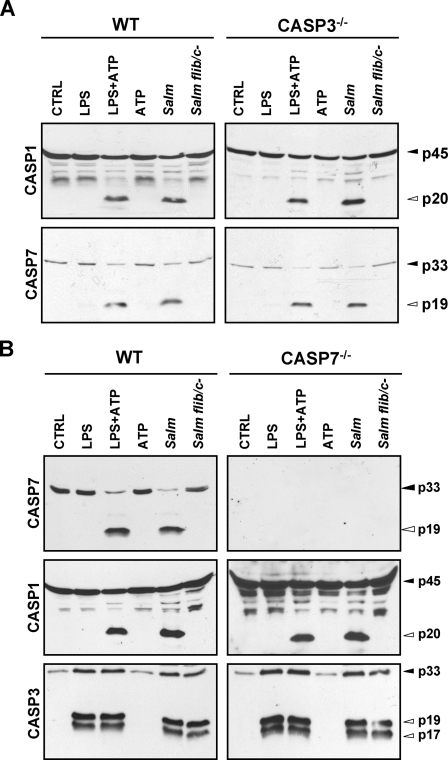Fig. 3.
Caspase-3 and -7 are activated independently in response to microbial stimuli. A and B, macrophages from wild type and caspase-3−/− (A) or caspase-7−/− (B) mice were stimulated with LPS for 3 h and then pulsed with ATP for 30 min, stimulated with LPS alone, pulsed with ATP alone, or infected with wild type S. typhimurium (Salm) or a flagellin-deficient mutant (Salm flib/c−) for 1 h. Cell extracts were immunoblotted with antibodies against caspase-1 (CASP1), caspase-3 (CASP3), and caspase-7 (CASP7). Black arrows indicate full-length caspases, and white arrows mark the large subunits of activated caspase-1, -3, and -7. Results are representative of at least three independent experiments. CTRL, control; WT, wild type.

